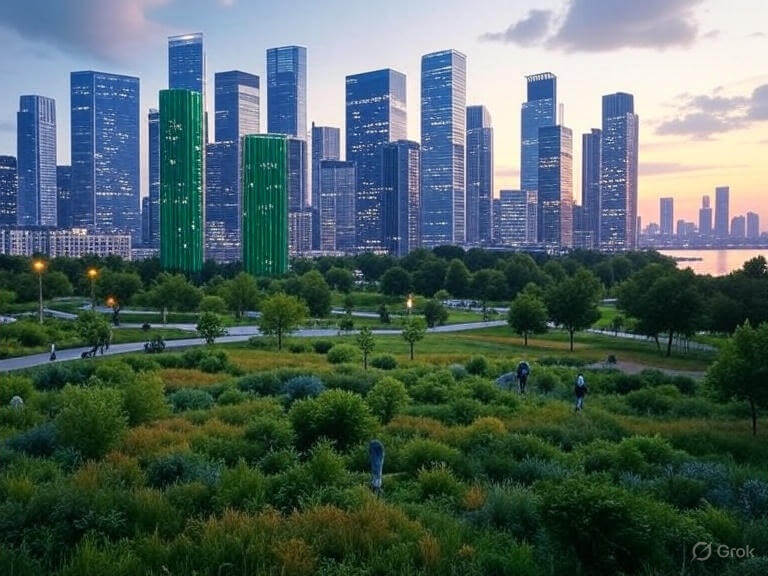With over half of the global population living in urban areas—a figure expected to rise to 70% by 2050—cities are at the forefront of both economic growth and climate change. While urban centers contribute 80% of global economic activity, they are also responsible for 70% of greenhouse gas emissions. This dual role makes cities critical players in the fight against climate change. A new World Bank report, Thriving: Making Cities Green, Resilient, and Inclusive in a Changing Climate, offers a roadmap for transforming urban landscapes to meet these challenges. Here are the key insights and recommendations from the report.
The Urban Challenge: Prosperity vs. Climate Change
Cities are engines of prosperity, innovation, and opportunity. However, rapid urbanization has also led to overcrowding, pollution, and vulnerability to climate-related disasters like floods, heatwaves, and storms. The report highlights that cities are increasingly facing the impacts of climate change, which disproportionately affect low-income communities and exacerbate inequality. To ensure a sustainable future, cities must become greener, more resilient, and more inclusive.
Key Findings from the Report
The World Bank’s report draws on data from over 10,000 cities worldwide, providing a comprehensive analysis of urban challenges and solutions. Here are some of the critical findings:
- Cities are on the frontlines of climate change: Urban areas are both contributors to and victims of climate change. Rising temperatures, extreme weather events, and sea-level rise threaten infrastructure, economies, and livelihoods.
- Inequality exacerbates vulnerability: Low-income populations often live in the most climate-vulnerable areas, such as floodplains or informal settlements. Addressing climate change must go hand-in-hand with reducing inequality.
- Policy instruments are available: The report identifies five broad sets of policy tools that cities can use to tackle these challenges effectively.
Five Policy Instruments for Sustainable Cities
The report outlines five key strategies for making cities greener, more resilient, and inclusive:
- Invest in Green Infrastructure: Cities must prioritize sustainable infrastructure, such as renewable energy, energy-efficient buildings, and public transportation systems. Green spaces, like parks and urban forests, can also help mitigate heat and improve air quality.
- Enhance Resilience to Climate Risks: Urban planning must incorporate climate resilience, such as flood defenses, stormwater management, and disaster preparedness programs. This includes upgrading infrastructure to withstand extreme weather events.
- Promote Inclusive Growth: Policies must ensure that the benefits of urbanization are shared equitably. Affordable housing, access to basic services, and social safety nets are essential for creating inclusive cities.
- Leverage Technology and Innovation: Smart city technologies, such as data-driven urban planning and digital governance, can improve efficiency and reduce emissions. Innovation in areas like waste management and water conservation is also critical.
- Strengthen Governance and Financing: Effective governance and adequate funding are crucial for implementing these policies. Public-private partnerships and international support, such as that provided by the World Bank, can play a significant role.
The Role of the World Bank
The World Bank Group is one of the largest sources of funding and knowledge for sustainable development. Through its support, cities can access the resources and expertise needed to implement these transformative policies. The report underscores the importance of global collaboration in addressing urban challenges and achieving climate goals.
What Can Individuals Do?
While policymakers and businesses play a significant role, individuals also have a part to play in creating sustainable cities. Here are a few actions you can take:
- Advocate for green policies in your community.
- Reduce your carbon footprint by using public transportation, conserving energy, and supporting local sustainability initiatives.
- Participate in urban greening efforts, such as tree planting or community gardens.
Conclusion
The World Bank’s report is a call to action for cities worldwide. By investing in green infrastructure, enhancing resilience, promoting inclusivity, leveraging innovation, and strengthening governance, we can transform urban areas into hubs of sustainability and opportunity. The time to act is now—our future depends on it.
To learn more, read the full report here: World Bank Report

